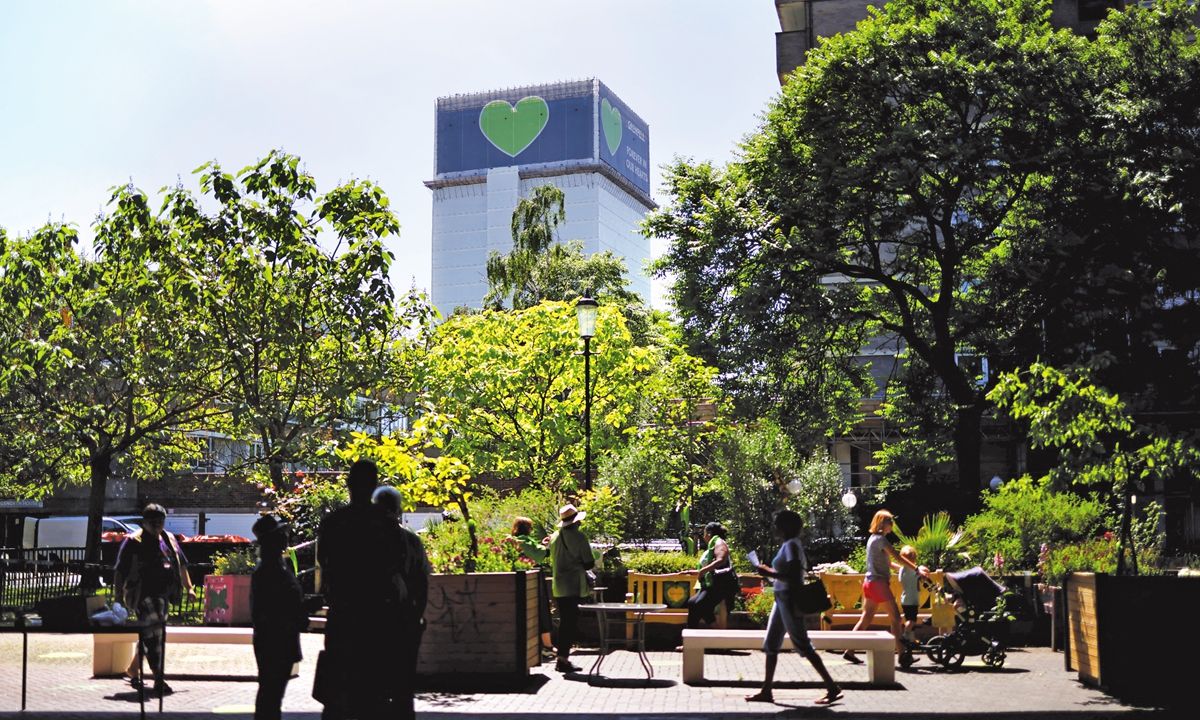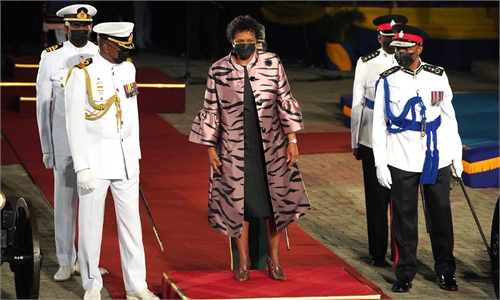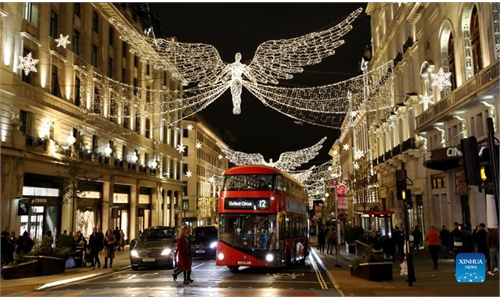
Grenfell Tower, site of the UK's deadliest fire since World War II that killed 79 Photo: AFP
Owners of flats built with combustible cladding have welcomed a UK government move to make developers contribute more to the cost of its removal following the deadly 2017 Grenfell Tower fire but say much more is needed.
"I would say it's a step in the right direction, but it's certainly not a solution," said Lucy Brown, 47, a financial headhunter who lives on the top two floors of an apartment block in London's Docklands.
Housing Secretary Michael Gove on Monday said he wants the construction industry to stump up around 4 billion euros ($5.4 billion) to cover the expense of removing the dangerous cladding from apartment buildings between 11 and 18 meters tall.
The move marked a U-turn on heavily criticized plans announced early in 2021 which would have required flat owners with unsafe material on their properties to access a low-interest loan scheme to help pay for the removal costs.
Brown, whose apartment block is around 18 meters high, says she still has no idea when the cladding around her flat will be removed, or how much she will be charged.
"This makes it very difficult to sell," said mother-of-three Brown, who is part of the End Our Cladding Scandal (EOCS) campaign.
"Because anybody looking to buy the flats will have to take on what's essentially an uncapped charge to remediate the buildings and make them safe."
Huge costs
Gove's new proposals came after more than four years of inaction and wrangling with the property industry following the June 2017 blaze in west London that killed 72.
An official report blamed highly combustible cladding fixed to the 24-story block as the "principal reason" the fire spread. A public inquiry is still ongoing.
Brown says the cost of making a flat safe, wrapping the building in plastic sheets and keeping all the windows closed for up to a year, can be 200,000 euros.
"And also typically when the cladding comes off, is when they find out the full extent of the defects, and what else needs to be remedied," said Brown.
She felt let down by a "systematic failure" and concerned about her family's safety.
"We had to have very difficult discussions with our three daughters, we had to explain to them all of the measures that they needed to do in the event of a fire because having cladding on the building means that you've got minutes before it spreads everywhere," she said.
Her youngest daughter, aged nine, "can't sleep at night unless she sleeps in our room because she's so worried about fire happening in the middle of the night."
She added: "All three of the girls have nightmares."
Lack of protection
Grenfell was Britain's deadliest domestic fire since World War II.
It left thousands of leaseholders facing rising costs, from increased insurance premiums to, in some cases, having to pay for round-the-clock fire marshal patrols.
They have been unable to sell or rent their flats because mortgage providers are unwilling to lend on the properties or because of other resulting restrictions.
Amid the ongoing blame game over who should pay for apartment blocks to be fixed, Brown says building managing agents are "ramping up all the charges they can, because they know that flat owners really have no recourse.
"We really have no oversight over how our money's being spent," she said, calling for a "full solution," including for buildings under 11 meters high, which are not currently covered by any government plan.
Her neighbor, Liam Spender, 37, a lawyer who is also part of the EOCS campaign, said it was too early to know what the impact of the government U-turn would be.
In England, if you own a flat you're a leaseholder, but the landlord is the owner of the freehold, the land on which the building is situated, and leaseholders are liable for ground rent.
Spender said he bought his flat, at the top of a nearby five-story building, in 2019. "None of the surveys I had done indicated there was any issue," he said.
Around a year after moving in, he received a letter from the landlord saying the cladding was flammable and that flat owners would be expected to pay to remove it.
"It's astounding," said Spender.
"There's so little protection for people buying flats and houses, you have more protection buying a sandwich than you do buying a flat or a house in this country as the law currently stands."
The current predicament for thousands of flat owners, the total number of those affected nationwide is unknown, is the result of a "decades-long failure," he said.
"Successive governments have favored loosening regulations, making it easier to do business. And I'm afraid this is the consequence of that choice."
Grenfell Tower, as the site of Britain's deadliest domestic fire since the second World War, its official report blamed highly combustible cladding fixed to the 24-story block as the principal reason the inferno spread. Condolense messages were sent for the victims of the Grenfell fire disaster at the time.
Seventy-nine people are presumed missing or dead after the 24 story residential Grenfell Tower block in Latimer Road was engulfed in flames in the early hours of June 14, 2017.
AFP



